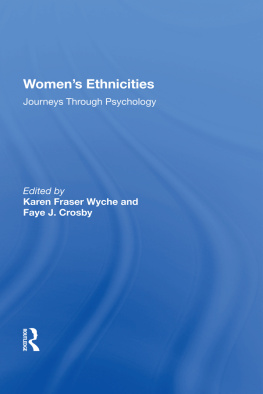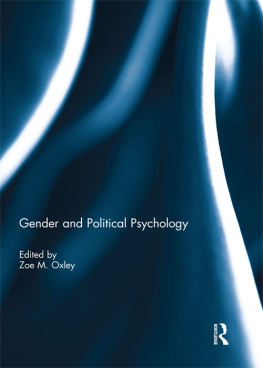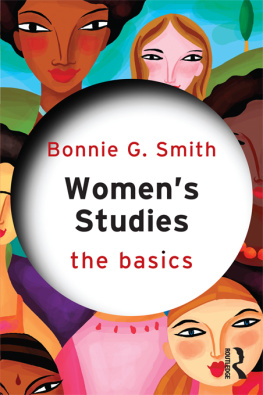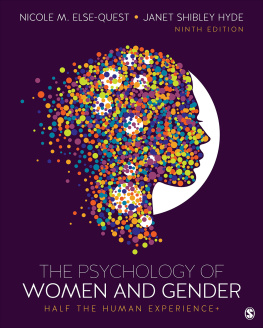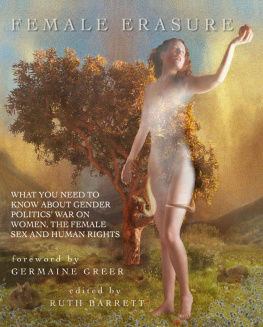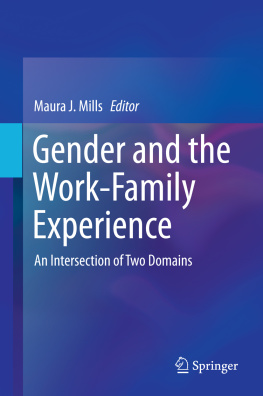First published 1996 by Westview Press
Published 2018 by Routledge
52 Vanderbilt Avenue, New York, NY 10017
2 Park Square, Milton Park, Abingdon, Oxon OX14 4RN
Routledge is an imprint of the Taylor & Francis Group, an informa business
Copyright 1996 by Taylor & Francis
All rights reserved. No part of this book may be reprinted or reproduced or utilised in any form or by any electronic, mechanical, or other means, now known or hereafter invented, including photocopying and recording, or in any information storage or retrieval system, without permission in writing from the publishers.
Notice:
Product or corporate names may be trademarks or registered trademarks, and are used only for identification and explanation without intent to infringe.
A CIP catalog record for this book is available from the Library of Congress.
ISBN 13: 978-0-367-21373-2 (hbk)
Mythology tells us that for women, looking is a transgression. Pandora, the first woman, was unable or unwilling to contain her curiosity. She looked into the forbidden box, unleashing all evil upon the world. Lots wife (we know her only by her husbands name) looked back at the city as she fled and was turned into a pillar of salt. Even the Gorgon Medusa, whose frightful demeanor turned all who looked upon her into stone, was undone by gazing at her own reflection in a mirror. In these stories, the protagonist who defies the order to look away is invariably punished, often in such a way that she is literally paralyzed. These myths, then, communicate the message that boxes of unknown contents are better off sealed, that history and self ought to remain unexamined, and that those who choose instead to look will be condemned.
As a discipline, much of psychology implicitly shares these prohibitions, particularly concerning the subject of race and ethnicity. Even today, when university politics often focuses on whether and how to achieve diversity, many scholars consider the race and ethnicity of the people they study to have little or no relationship to the interpretation of their findings. For these psychologists, race and ethnicity remain unopened boxes. Indeed, the prospect of revealing their contents may be worrisome. Similarly, relatively few psychologists attend to the historical contexts of their work and of the people they study. Their unwillingness to look back means that their scholarship floats in a kind of historical vacuum, abstracted from the larger contexts that may give meaning both to the research and to the lives of the people studied. Finally, the ideal of scholarly objectivity dictates that researchers strive to divorce themselves from their own backgrounds of race, ethnicity, and gender. This principle suggests that the scholar who looks reflexively upon the self will, like the Gorgon, be frozen in the attempt to generate knowledge. However, without such insight into the self, we may, like Medusa, remain unaware of the nature of our impact on the people upon whom we direct our stare!
In this volume, women scholars dare to break these commandments, audaciously turning their gaze on the previously forbidden topic of womens ethnicity. Like Pandora, they have opened the box, in this case marked race and ethnicity, potentially unleashing the complexity of the subject upon the discipline, forever changing it. They confirm that it matters, in simple and complex ways. For example, Guadalupe Gutierrez found that the Mexican American men and women in her sample were, as a group, conscious of power differences in the world around themthey felt that there were clear lines drawn between themselves and persons in power. At the same time, there were differences in their reactions to those power structures: Women, more than men, sought nontraditional relations between traditional dominants and subordinates. One thing we learn from the authors who opened this box, then, is that the contents cannot be described in simple terms. Among people with the same racial-ethnic background, there are many differences in just how that background matters to them.
Like Lots wife, the scholars in this volume look behind them, to understand the ways in which the discipline of psychology has been partial and incomplete because of its blindness to history, race, and ethnicity. For example, Mary Brabeck looks back to discover a U.S. history shaping psychologists individualistic assumptions of individualism and looks back on a violent Guatemalan history shaping ordinary adolescents experience of everyday danger as well as their communal orientations. Like others in this book, she dares to think through the ways in which the past is present in her own worldview as well as in the worldviews of those she studies.
Finally, like Medusa, the authors of these chapters turn their critical glance upon themselves, scrutinizing their own reflections in an effort to understand how they have been blind to certain ways of seeing, and reveal the in-sight they have gained through opening the boxes of their constructs and turning the lenses of history and self-reflection on their research. For example, Sandra Tangri describes how in her multiethnic, cross-cultural study of womens lives, ethnicity complicates both collaboration and assessment and interpretation. She outlines difficulties that face those who try to hold on to their own positive ethnic identities while appreciating others differences, and she reminds us that achieving mutual understanding is hard and often painful work. We learn from her, and the other authors here, not only that we study womens ethnicity from particular standpoints but also that we must be willing to try to understand our own inevitably obstructed views.
What is the fate of these intrepid scholars who refuse to look away? In her chapter, Brenda Allen suggests that there may indeed be professional costs to those who not only look but also speak about what they see. There will also be gainsfor ourselves, for psychology, even for these authorsif we dare to listen to what they have to say.
Elizabeth R. Cole
Northeastern University
Abigail J. Stewart
University of Michigan

